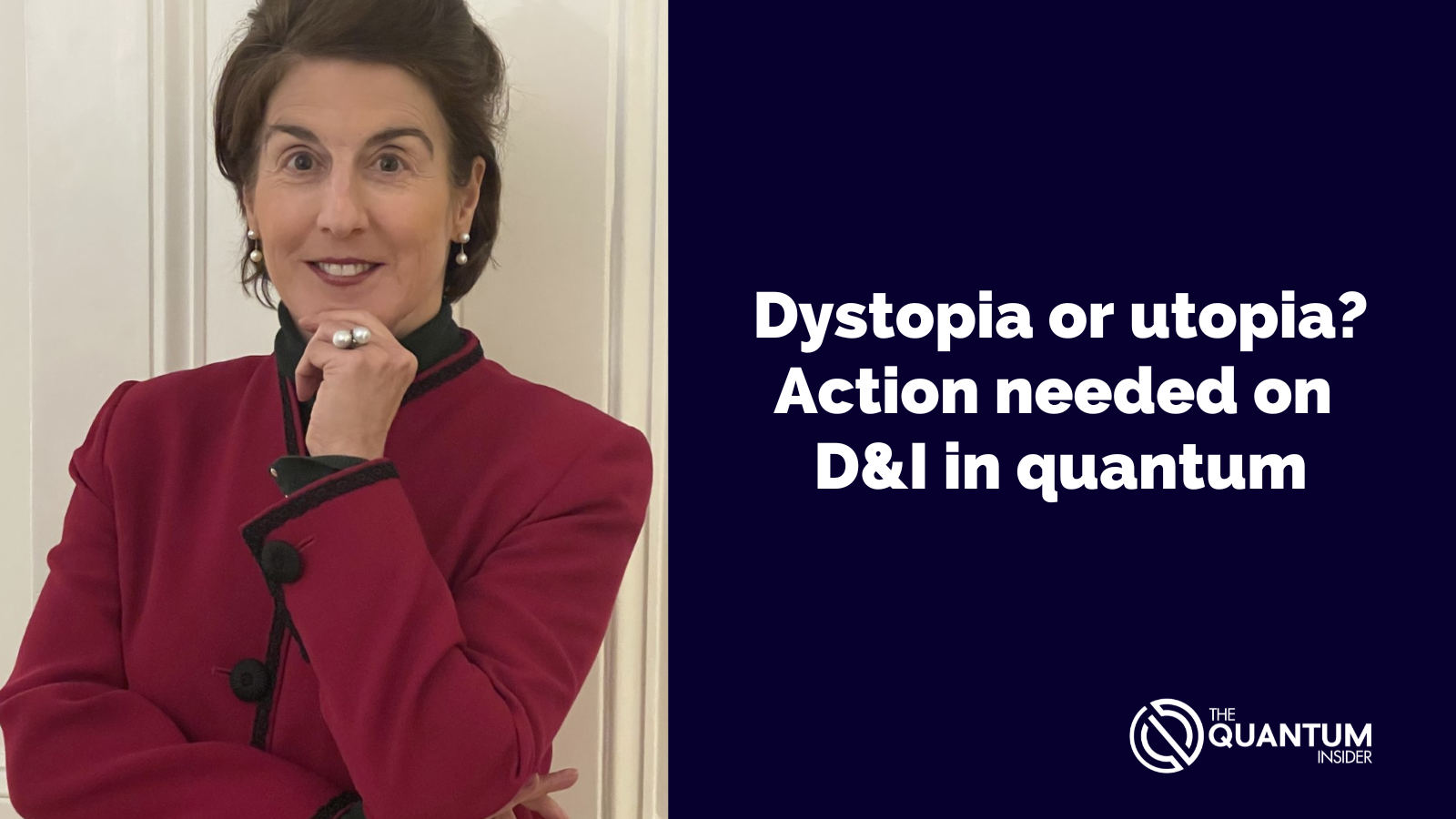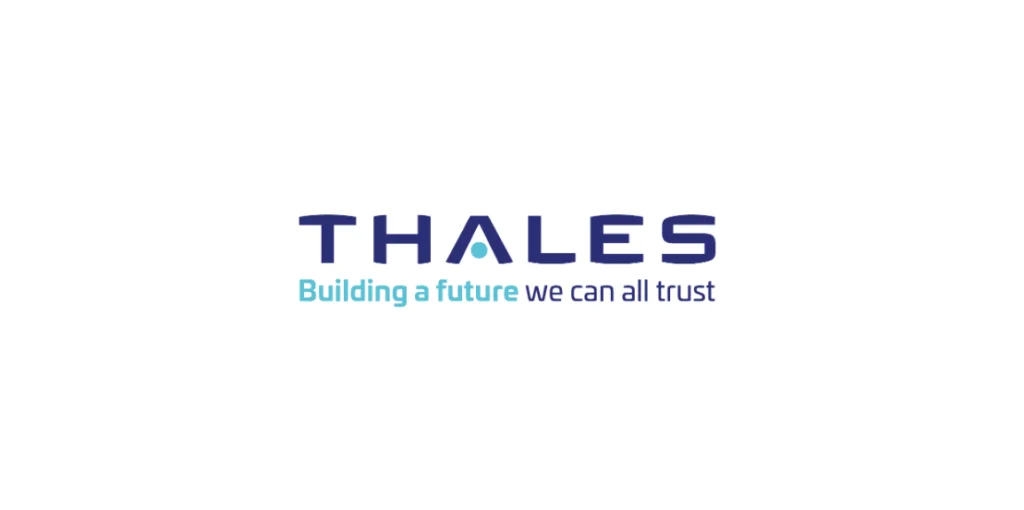Diversity and Inclusion in the quantum ecosphere is abysmal.
The numbers speak for themselves. In the private sector, only 1 in 54 of all applicants for female roles are female, while almost 80% of quantum companies do not have a senior female figure. There is no data on sexual orientation or ethnicity.
In an industry that is forecast to be worth $8.6bn in 2027, we cannot afford to miss out on talent. Especially when that industry is going to help solve some of the world’s most intractable environmental and medical problems. D&I is key to accelerating innovation and creativity, and avoiding group think, as evidenced in a report from The Inclusion Initiative at the London School of Economics.
Is there cause for hope? Definitely. Firstly, 62% of current employees in quantum want their employers to do more to increase diversity, according to recruitment firm Quantum Futures.

Secondly, two new organisations are focused on change. DiviQ was formed a few months ago, with industry luminaries like whurley and Denise Ruffner on board. Its mission is to foster a diverse quantum workforce through supporting those from underrepresented backgrounds with education, networking opportunities and mentorship. In an earlier incarnation, it paired over 400 quantum students, graduates and young professionals with mentors in the quantum space.
Meanwhile, The Inclusion Initiative at the London School of Economics, an institute that specialises in creating inclusive workplaces in financial and professional services through behavioural science and data, now has a new Deep Tech hub with a focus on quantum.
Thirdly, the quantum industry can learn from the finance industry, which is far from perfection, but has taken great strides in recruiting, retaining and promoting diverse staff, and changing the composition of its Boards.
In The City Quantum Summit Briefing on D&I, published earlier this month by The Inclusion Initiative (TII), participants in a brainstorming lunch at the Summit shared their advice from a lifetime of seeking to change their respective industries.
“Collecting data on diversity, benchmarking and fair hiring processes is crucial to ensure equal representation early in the hiring pipeline,” said Connor Teague, Founder of Quantum Futures. “Companies need to focus on unbiased job descriptions and interview processes.”
Cecily Josten, the researcher from TII who authored the report, noted that relying less on an applicant’s background and more on task-based assessments would aid recruiters in promoting a more diverse talent pool.
Bringing in leaders from other industries is helpful, pointed out Teague. “Hiring non-traditional quantum leaders to the business – when the co-founders step to the side and bring in a leader from a different industry – the business tends to stop hiring versions of themselves! I’ve seen great success with quantum businesses that have done this.”
Denise Wilson OBE, a leader who has transformed the composition of FTSE-350 Boards – 40% are women, compared to only a decade ago when 152 of the companies had no women on boards at all – was clear that “the power of publication should not be underestimated, and transparency drives change.”
Armed only with a target to increase the number of women on Boards, as CEO of the FTSE Women Leaders Review Wilson used embarrassment and peer pressure as a tool, publishing a list of Boards that were falling behind the new norm – as well as a barrage of social media highlighting the best and the worst performers, and supportive government guidance.
“Improving diversity means a multi-year, multi-layered approach, it requires systemic change and taking on a system that has worked very well for some but excludes others. D&I must be owned and held accountable at the Board level and talked about like any other business-critical issue,” she said.
Wilson noted the need to “lift the lid on every people process, pay, bonus allocations, retention, performance evaluations and the like.” A recent study of Gen Z by consultancy Oliver Wyman found that 30% of women looking to switch jobs cited better advancement and growth opportunities as a reason to leave a job, and wanted greater clarity about internal promotions, suggesting they see the current processes as unfair.
For Denise Ruffner, the President of Women in Quantum, a Founder at DiviQ, and a long-standing campaigner for a more diverse Deep Tech sector, culture is key. “Organisations need to pay attention to their culture and cultivate an environment where different voices and viewpoints are not only heard but encouraged and considered,” she said, pointing out that retention of highly skilled employees is a big issue in the industry.
The Oliver Wyman study noted that Gen Z (of all genders) expect fair pay, inclusive policies and transparency, or they quit. More than 60% of the 10,000 respondents in the US and the UK are looking to job hop despite an uncertain economy – they view work as transactional and “want to control their career paths, pushing hard or slowing down as needed to accommodate family, reduce stress, or pursue outside interests.”
Incorporating a degree of flexibility at work is another factor useful to encourage D&I. The average number of days worked from home or remotely is currently stabilising at around 25% of total working days. Flexible work policies can reduce quitting rates by 35%, according to recent work by Professor Nicholas Bloom of Stanford University.
LSE Professor Grace Lordan, Founder of TII, called for fair opportunities, visibility and voice, which depends on inclusive leaders who do not hire based on their own affinity, but hire for diversity and for perspectives that they do not yet have. “That really requires a change in ego in our leaders and a change of perspective towards a diversity mindset.”
Industry legend whurley was adamant that commitment and culture are crucial: “Commitment because hiring for DEI isn’t without its challenges and you can’t give up if you face a few along the way. Culture because that’s the #1 key to DEI in a company. Without a culture that embraces and celebrates differences you simply won’t succeed. DEI has to be built into your company’s DNA.”
Ultimately, D&I is much more than just a ‘nice to have’ in a transformational industry like quantum technology. A warning lies in what is currently happening with AI, and what happened with social media.
Whurley put it very clearly. “Quantum will change computing more in the next ten years than it has changed in the last century. Providing equal access and equal opportunities will make the difference between humanity’s future being diverse or dystopian.”
Karina Robinson is Senior Adviser to Multiverse Computing, Co-Founder of The Inclusion Initiative, and Founder of The City Quantum Summit
If you found this article to be informative, you can explore more current quantum news here, exclusives, interviews, and podcasts.















